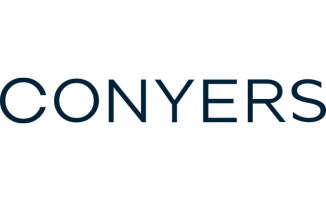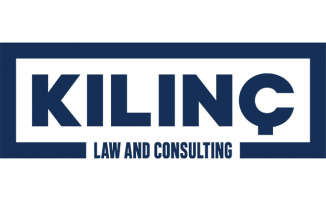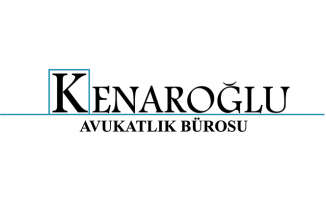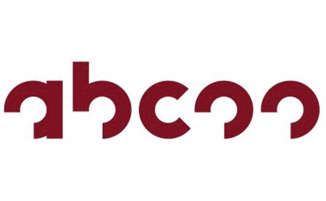In recent years, environmental, social and governance (ESG) issues have become increasingly important to shareholders and boards, as the regulatory landscape has developed quickly in multiple jurisdictions, and the financial and reputational risks of non-compliance with ESG regulation and best practice have increased. Listed companies, large corporates, private equity funds and financial institutions are all now subject to increased ESG-related reporting and disclosure obligations, and are demanding greater transparency and standards from investee companies in ESG matters. ESG factors are also increasingly relevant to acquisition finance, with the growth of the sustainable finance market.
Continue reading “Sponsored briefing: The impact of ESG on M&A transactions”
Sponsored briefing: Utilising offshore structures for digital assets
Conyers’ Barnabas Finnigan and Eric Flaye on how offshore jurisdictions have positioned themselves to take advantage of recent developments
The development of blockchain applications and the rapid growth of cryptocurrencies and other virtual assets have opened up new opportunities in the fintech space in recent years. Increasingly, sophisticated investors are seeking ways to access this niche sector. Continue reading “Sponsored briefing: Utilising offshore structures for digital assets”
Sponsored briefing: Q&A with PATH Law partners Dominika Mizielińska and Sergiusz Kielian
Can you give our Legal Business readers an overview of PATH Law?
PATH, established in 2016, was among the first Polish law firms to recognise private clients as an independent legal practice. Continue reading “Sponsored briefing: Q&A with PATH Law partners Dominika Mizielińska and Sergiusz Kielian”
Sponsored briefing: Q&A with ASC Law’s senior management
What do you consider are the biggest achievements of ASC Law since being founded 21 years ago? (MA, ZC, OB)
Murat Aksu (MA): I think I can speak for all of us in that we are all thrilled, 20 years on, by what we have built. All three of us had been working for large organisations before we started ASC Law, and we all dreamed of starting our own business. And here we are. From just a handful of lawyers in 2001, ASC Law now has more than 70 lawyers, with total staff of some 170. It is now one of the top five largest law firms in Turkey. Continue reading “Sponsored briefing: Q&A with ASC Law’s senior management”
Sponsored firm focus: Focus on Aksu Çalıskan Beygo Attorney Partnership
Esentepe Mah. Harman Sok. No. 5, Harmancı Giz Plaza Kat 16, Şişli, İstanbul, Turkey 34394
T: +90 212 284 98 82 | E: info@aschukuk.com | www.aschukuk.com
Practice areas: arbitration, banking and finance, capital markets, commercial (including project development and finance), corporate, debt restructuring, labour/employment, litigation, M&A, probate, real estate Continue reading “Sponsored firm focus: Focus on Aksu Çalıskan Beygo Attorney Partnership”
Sponsored briefing: Turkey: A paradise for startups and angel investors
New and bold ideas often come from young people. We see the effect the new generations have on innovative technologies, especially due to the increase in digitalisation and the adaptation of the older generation to digital life being slower than the younger generation. Startups are on the minds of most of the young business people who think that their creative ideas cannot grow within the huge bureaucratic and cumbersome holdings and joint stock companies.
The startup, in words of famous entrepreneur Neil Blumenthal, is a term used for companies working to solve a problem where the solution is not obvious and success is not guaranteed. Since a not-so-distant past, we have often heard this term and have seen entrepreneurs’ success and failure stories. The number of entrepreneurs who do not want to be a part of corporate culture, who have new and extraordinary ideas and who adopt a flexible working culture is rapidly increasing. When it comes to startups, success, investment, growth and earnings are on one side of the coin; whereas the other side holds the problems of the crawling period, financial difficulties and the difficulty of finding investment. Perhaps even those of you who are reading this article have or have had a successful or unfortunate startup adventure. Not everyone who touches, nurtures and feeds on the startup ecosystem is immune to the difficulties experienced in that painful birth and crawling process of a startup. Perhaps one of the most challenging of these difficulties is the problem of financing. While some entrepreneurs in Turkey benefit from sources such as KOSGEB or TÜBİTAK funds or micro-loans, some of them are knocking on venture capital companies’ and angel investors’ doors to solve the financing problem that can determine the fate of a startup. Apart from these, another source of financing frequently used is the savings that the entrepreneur has made up to that day or the financial support they received from family, relatives and friends. Continue reading “Sponsored briefing: Turkey: A paradise for startups and angel investors”
Sponsored briefing: Understanding SAFEs and complexities in the ‘Simple’
I. Understanding SAFEs
SAFE is an acronym for ‘Simple Agreement for Future Equity’ that is concluded between investors and the target startups; where the investors give the funds to startups in advance, in exchange for a promise from the company to give shares to the investor at a future date when the startup raises money on a priced round. It is possible for the startups to sign SAFEs with numerous investors at the same time with different terms, as by nature, SAFEs let startups reward investors who are willing to move first by taking more risk, with lower valuations. Continue reading “Sponsored briefing: Understanding SAFEs and complexities in the ‘Simple’”
Sponsored briefing: The metaverse law – are we ready for the challenge?
We are witnessing unexampled times… In the light of the pandemic, there have been economic ramifications in Turkey and all around the world. Yet, this was also an opportunity for finding tools in order to ensure business continuity, since no one had any idea on when the pandemic will cease. Thankfully, we are in an era where we can get the most out of technological developments. In that regard, virtual interactions have become an essential part of life for businesses. Needless to say, the legal sector is no different than any other sector. The trend has even accelerated during the pandemic, with both clients and law firms inclining towards video-conferencing and other appropriate forms of virtual interactions, eg, e-hearings and e-meetings.
Not long ago, interest in virtual interactions has focused on the ‘metaverse’, which seems to be the latest fashionable concept in tech viewed as a form of cyberspace. What makes the metaverse different? Well, basically, it allows us to immerse a version of ourselves as avatars in its environment via augmented reality or virtual reality. However, at this point, lawyers are inclined to ask who or what will govern the metaverse? Continue reading “Sponsored briefing: The metaverse law – are we ready for the challenge?”
Sponsored briefing: Use requirement of trade marks and potential consequences of non-use under Turkish law
Under the Industrial Property Law numbered 6769 (IP Law), an important obligation imposed on trade mark owners after obtaining registration is the requirement to use the trade mark. The IP Law attaches two important potential consequences for non-use of the trade marks, after the completion of the five-year grace period. First, the trade mark can be revoked due to non-use upon the request of the interested parties and second, its enforceability can be weakened by a non-use defence asserted by the applicants in the opposition actions before the Turkish Patent and Trademark Office (the Office) or by the defendants in invalidation or infringement actions before the courts.
The non-use defence has been introduced as a revenue granted to applicants and defendants for the first time with the IP Law, with its entry into force in 2017. This expanded the potential consequences that could be faced by trade mark owners with vulnerable trade marks, by adding to the already existing risk of facing a non-use revocation claim under the late Decree Law numbered 556 on the Protection of Trademarks (Trademark Decree Law). Changes in practice will also take place as of 10 January 2024, with the transfer of the authority of the courts to evaluate non-use revocation claims to the Office. Thus, trade mark owners with trade marks registered for more than five years in Turkey should be cautious of the various avenues available to third parties against their trade marks, when deciding on enforcing their rights. Continue reading “Sponsored briefing: Use requirement of trade marks and potential consequences of non-use under Turkish law”
Sponsored briefing: Formation of contracts by electronic means in Turkey
The rapid development of industrialisation and globalisation has resulted in the rise of the computer age. With the recent advancement in the areas of computer technology, telecommunications and information technology, living and business styles of people have been significantly changed.
Electronic commerce is one of the products of this change that has a major economic significance in today’s world. Electronic commerce provides the flexibility in terms of place and time. As a result, business relationships are not restricted with the limits of geography and time anymore. Continue reading “Sponsored briefing: Formation of contracts by electronic means in Turkey”














